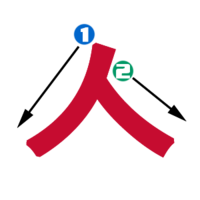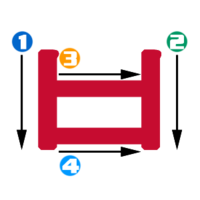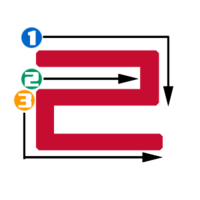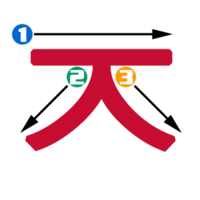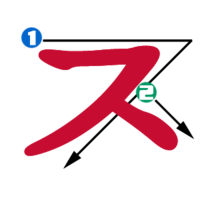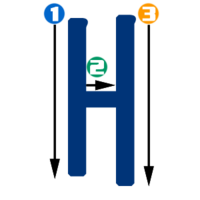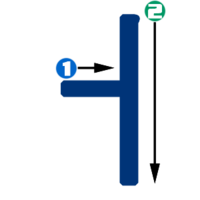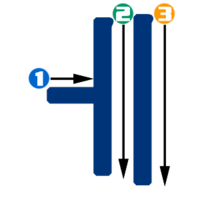Difference between revisions of "Hangeul step 3b"
From Korean Wiki Project
(→更多列举More examples) |
|||
| Line 1: | Line 1: | ||
{{HangeulTop}} | {{HangeulTop}} | ||
{| border=0 style="text-align:center; margin-left: auto; margin-right: auto;" | {| border=0 style="text-align:center; margin-left: auto; margin-right: auto;" | ||
| − | |- | + | |- |
| [[File:Back.png|link=Hangeul step 3|150px]] | | [[File:Back.png|link=Hangeul step 3|150px]] | ||
| [[File:Next.png|link=Hangeul step 4|150px]] | | [[File:Next.png|link=Hangeul step 4|150px]] | ||
| Line 11: | Line 11: | ||
{| class="wikitable" style="text-align:center; margin-left: auto; margin-right: auto;" | {| class="wikitable" style="text-align:center; margin-left: auto; margin-right: auto;" | ||
|- | |- | ||
| − | ! | + | ! 单词 !! 发音|- |
| − | |- | + | |
| 바가지 ( 瓢儿a rip off) | | 바가지 ( 瓢儿a rip off) | ||
| <flashmp3>bagaji H.mp3, bagaji M.mp3|leftbg=003478|rightbg=c60c30|lefticon=ffffff|righticon=ffffff|loop=yes</flashmp3> | | <flashmp3>bagaji H.mp3, bagaji M.mp3|leftbg=003478|rightbg=c60c30|lefticon=ffffff|righticon=ffffff|loop=yes</flashmp3> | ||
Revision as of 03:53, 18 January 2011
|
|
| Help · Cheat Sheet · Community portal |

|

|
更多例句More examples
More examples for section 3.
| 单词 | - | 바가지 ( 瓢儿a rip off) | |
|---|---|---|---|
| 바보 (傻瓜 /笨蛋 fool,idiot) | |||
| 바지 (裤子pants) | |||
| 배 (梨子pear, ship, abdomen) | |||
| 배우 (演员actor/actress) | |||
| 배우다 (学/学习to learn) | |||
| 버리다 (扔to throw away) | |||
| 버스 (公共汽车bus) | |||
| 베개 (枕头pillow) | |||
| 베다 (枕 / 切to lay one´s head on, to cut) | |||
| 보내다 (派/送/寄/ to send) | |||
| 보다 (看to see, to look, to watch) | |||
| 보라 (紫色purple) | |||
| 보리 (大麦barley) | |||
| 부모 (父母parents) | |||
| 부자 (大款rich person) | |||
| 비 (雨rain) | |||
| 비자 (签证visa) | |||
| 사고 (事故accident) | |||
| 서다 (停to stand, to stop) | |||
| 서비스 (服务service) | |||
| 새다 (漏 to leak out, to dawn) | |||
| 새우 (虾shrimp) | |||
| 세다 (数to count, to strong) | |||
| 세로 (纵 length,height) | |||
| 세모 (三角triangular) | |||
| 세수 (洗脸face washing) | |||
| 세제 (洗衣粉cleaning material) | |||
| 소개 (介绍introduction) | |||
| 수도 (首都capital city) | |||
| 시다 (酸to be sour) | |||
| 아내 (妻子/wife) | |||
| 아래 (下边the bottom) | |||
| 아주 (很/挺very) | |||
| 아주머니 (阿姨 一middle age woman) | |||
| 애기 (小孩 /宝宝baby) | |||
| 어디 (哪儿where) | |||
| 어리다 (年龄小 to be very young) | |||
| 오래 (长时间for a long time) | |||
| 오리 (鸭duck) | |||
| 우리 (我们we) | |||
| 우주 (宇宙universe) | |||
| 이사 (搬家moving [house]) | |||
| 이자 (利息interest [money]) | |||
| 자기 (honey,darling or oneself ) | |||
| 자주 (常常often) | |||
| 주머니 (口袋pocket) | |||
| 주소 (地址address) | |||
| 주스 (果汁juice) | |||
| 조개 (贝/ 蛤蜊 shellfish) | |||
| 저자 (作者author) | |||
| 제주도 (济州岛 (韩国的岛)Jeju, an island in Korea) | |||
| 지다 (落日/ 下降/to lose) | |||
| 지구 (地球earth) |
写字Writing
Characters are written in a certain stroke order. Korean letters are written left to right, top to bottom.
猜谜Quiz
Before moving on, we recommend you take a quiz to test your knowledge so far. However, the choice is yours, you may choose to move on instead.

|

|

|
